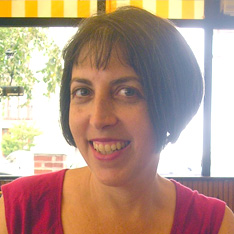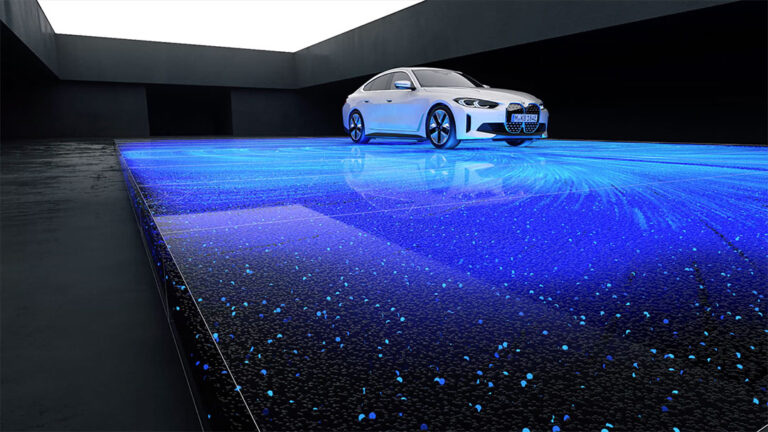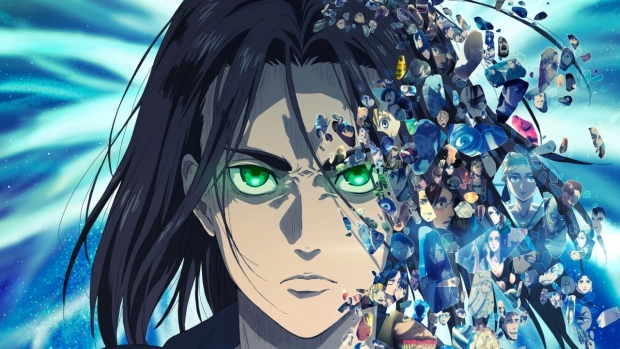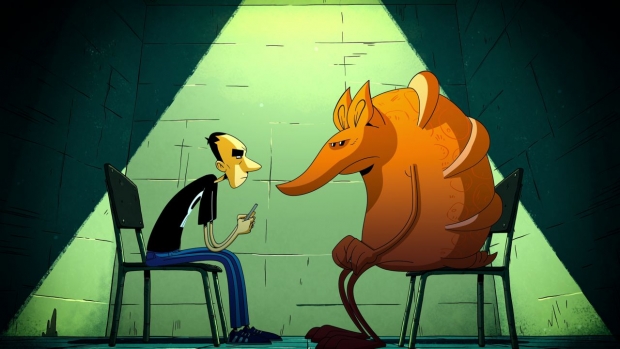He went on to explain, “There is a lot of music out there that if you’re a parent, you just don’t like it. You don’t want your kid listening to it anymore because it feels more like a wind-up toy that repeats itself over and over rather than anything worth watching. So, we want to be the answer to that, the antidote to that.”
Updating the Face character to be capable of hosting a full half-hour show was one of the first hurdles over which the production crew had to jump. For the makeover, they turned to veteran character designer Joe Moshier (character art director on Vivo, and character designer on The Emperor’s New Groove and How to Train Your Dragon 2).
A Brief History of Face
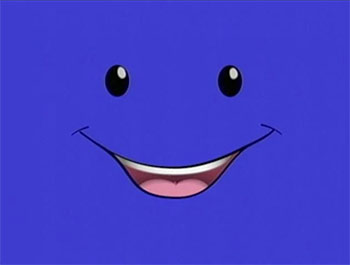
While there were plenty of physical changes that needed to be made for Face to work as the host of its own show, the character’s personality needs to stay as charming, funny, and relatable as its predecessor. With no defined gender, race, or age, there is a lot of space in which to play.
A Platform for Global Talent
“He’s an amazing character designer who had to solve a few very subtle things that were problematic with adapting the old design to our format and sustain the character on screen for longer periods of time,” Morganstein explained. “If you look at the old Face, the eyes are very far apart and there is a huge empty space in the middle. So, on Joe’s suggestion, we moved the eyes in and made them bigger and warmer to fill some of that empty space.”
The series is produced by Nickelodeon Animation in partnership with Jonas & Company, Inc. David Kleiler serves as showrunner and executive producer. Jonas & Co.’s Jonas Morganstein and Hema Mulchandani are also executive producers, while Kleiler and Morganstein direct. The two directors spoke with Cartoon Brew about the reimagining of the Nick icon.
Production for Nickelodeon is overseen by Eryk Casemiro, executive vp of Nickelodeon Animation, Global Series Content. Niki Williams serves as Nickelodeon’s executive in charge of production on the series. Veteran voice actor Cedric Williams is the voice of Face, and the series animation director is Celia Bullwinkel.
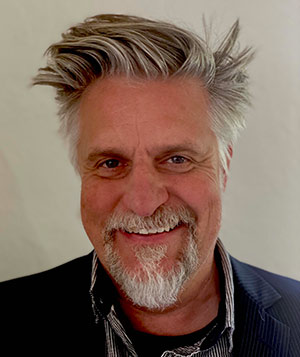
Each musical insert, based on a classic children’s song like “Head, Shoulders, Knees, and Toes,” “Puff the Magic Dragon,” or “Ants Go Marching,” is interpreted in the artist’s personal style, whether it be 2d animation, cg, paper cut-out, or stop motion. Animators involved in these segments include Angela Stempel, Hobo Divine, Monique Wray, Eleanor & Giovanni, Jordan Bruner, Loulou João, and Chris McDonnell, among numerous others.
“Face’s first job is obviously to introduce the segments, but we want the character to go on a journey with the audience and tell a story that they can relate to,” explained Kleiler. “We’re always trying to balance those roles for Face.”
Face Lift
“Bugs Bunny was a big factor,” Kleiler agreed. “Jonas and I talk about those kinds of influences all the time.”

“We thought about the dynamic characters of Tex Avery or Stephen Hillenburg, and the way they shift and become different things at times,” said Morganstein. “Our Face does something similar according to the character’s emotions at any given time, otherwise we would constantly just have two eyes and a mouth on screen.”
Head, Shoulders, Knees, and Toes?
“Face is ageless, but has a maturity close to the kids watching the show,” Morganstein elaborated. “Face is definitely not a teacher, not an authority figure, but more like an older cousin who has a sense of curiosity and wonder like the kids watching the show. Face is a flawed narrator that the kids can relate to.”
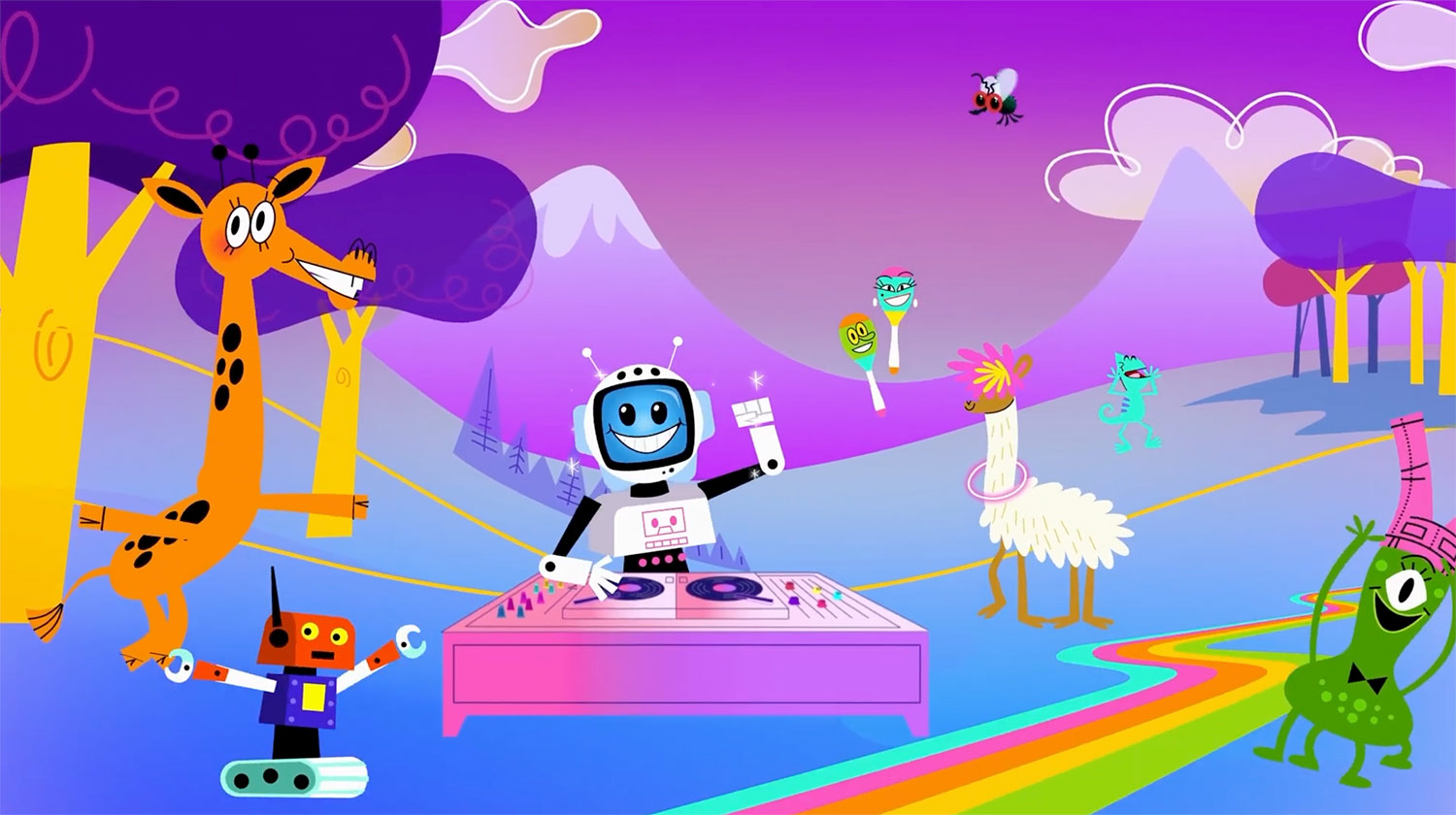
The new series has a core group of animators working remotely who create the show’s animated sequences starring Face, however, each episode also features musical numbers from independent animators all around the world.
Face debuted on Nick Jr. in 1994 and served as the animated host and mascot of Nickelodeon’s preschool programming block for more than a decade. Face would treat Nick Jr. viewers to musical shorts, show intros, and bumpers between programming. The character combined funny voices, silly expressions, and a wide palette of colors as well as props to play dress-up and engage with other characters on screen. Face was a constant on Nick Jr. for a decade, eventually going off the air in 2004.
New Look, Same Face
“We try to shine a light on talent, animators and designers who don’t often have a venue” Jonas Morganstein, who oversees the indie segments, explained in a conversation with Cartoon Brew. “We try really hard with some untested animation talent too. Some of the people we work with have a ton of experience, but some have almost none. We want to let them express themselves. That’s really key.”
Although Face has a new look, there are some old rules that the showrunners want to stick too. One such guideline, occasionally stretched, is that Face shouldn’t have human appendages. That means the character’s animators need to constantly come up with other ways of creating a charismatic host and narrator.
Nickelodeon’s iconic 1990s mascot Face is back in Face’s Music Party, a new hybrid variety show for kids which debuts on Nickelodeon today.
Each high-energy episode Face’s Music Party is based on an overarching theme – robots, imagination, bugs, etc. – and broken up into distinct acts which can be watched individually or enjoyed as part of a larger whole. One major advantage of the show’s variety format is that Nickelodeon can, and will, put individual skits and songs on YouTube for kids to watch at any time. Another key benefit though, from the creative side of production, is that the show’s team was able to reach out and commission work from independent artists and musicians from around the world.


